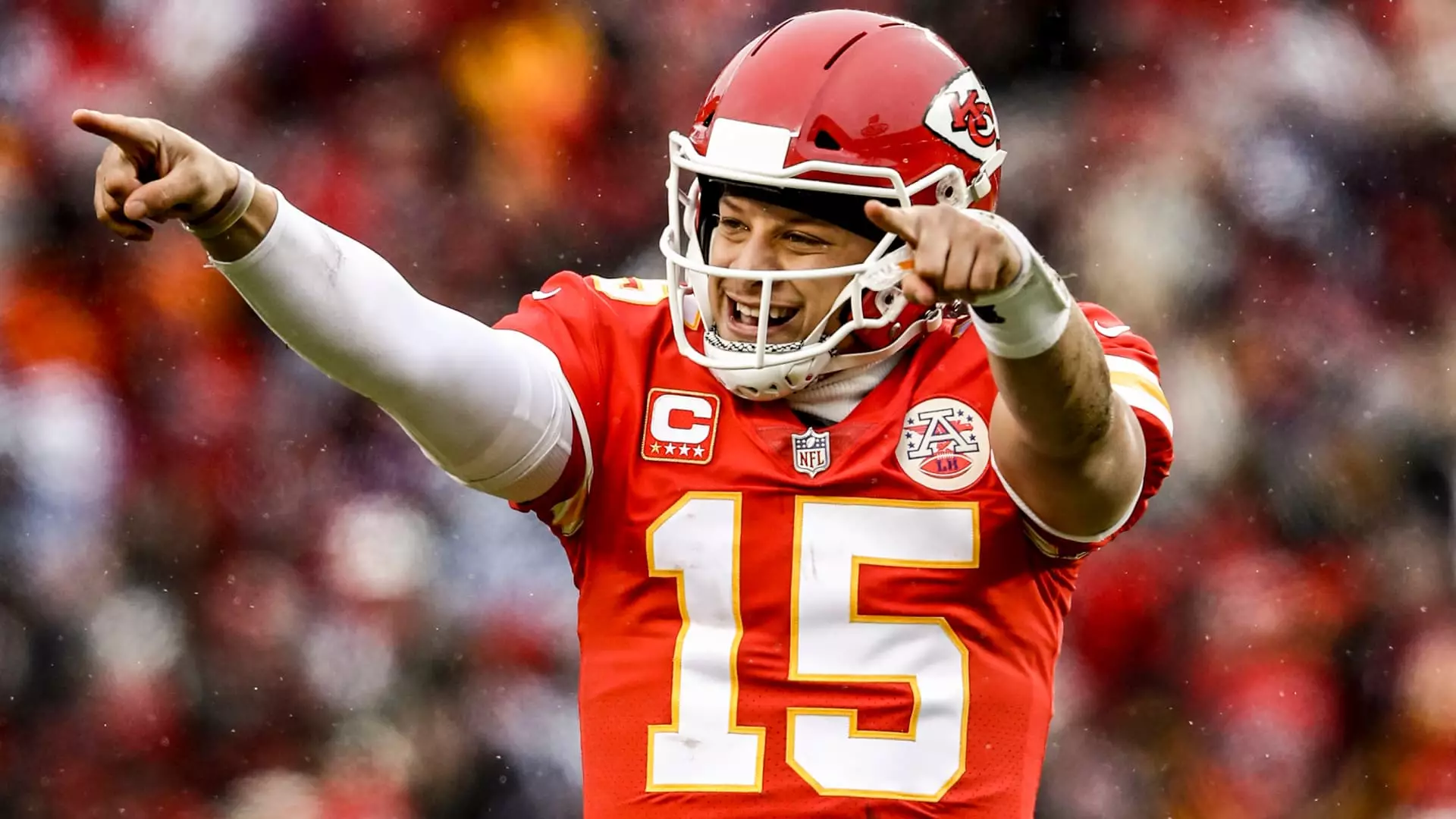In today’s world, the narrative of sports stars expanding beyond their athletic careers is often brushed off as merely savvy business acumen or personal growth. Yet, beneath the glossy surface lies a deeper, more concerning truth: the increasingly blurred line between entertainment, business, and sports. When Patrick Mahomes, a celebrated quarterback, begins to market coffee or invest heavily in ancillary sports ventures, it resonates as a symbol of a broader systemic shift. This shift promotes the idea that athletes are not just for entertainment but are turned into multi-dimensional entrepreneurs aiming for financial security amid a volatile sports landscape. While diversification can be prudent, the obsession with building an empire, even before the career end, signifies a misplaced quest for stability in a zone notorious for its financial volatility.
Such investments, particularly in trendy markets like ready-to-drink coffee, threaten to prioritize image management over genuine economic stability. Mahomes’ entry into the coffee industry—branding himself as a health-conscious investor—may sound inspiring, but it masks a dependency on consumer trends that can be capricious. These ventures often symbolize a superficial attempt to craft a post-athletic identity, which arguably distracts from the reality that many athletes are ill-prepared for the inevitable end of their playing days and the absence of a sustainable foundation once their careers conclude. The promises of wealth and influence often overshadow the underlying fragility of these ventures, which are susceptible to market fluctuations, corporate competition, and consumer fatigue.
Performative Activism and the Cultivation of a Hero Persona
Mahomes’ involvement in sports investments and endorsement roles plays into a broader societal trend: the transformation of athletes into social icons and brands. While there’s undeniable value in athletes embracing entrepreneurial pursuits, the emphasis on consumer-friendly stories that blend health consciousness with personal branding can often veer into performative activism. It’s easy to applaud Mahomes for choosing a “healthier” coffee option, but this framing glosses over deeper issues of consumerism, corporate influence, and the cultivated persona that athletes must maintain to stay relevant.
This manufactured hero image, while seemingly authentic, often serves the interests of big corporations and media narratives that promote a lucrative brand around sports figures. The focus is no longer solely on athletic prowess but on maintaining a positive, marketable personality. This becomes problematic when the narrative shifts from celebrating genuine community impact or social issues to emphasizing marketability and personal branding. Mahomes, like many peers, becomes a pawn in a much larger entertainment machinery that thrives on stories of transformation and rebranding, rather than authentic advocacy or societal engagement.
Stadium Politics and the Illusion of Community Investment
Investments on the business side of sports extend into stadiums, infrastructure, and community projects—yet beneath the surface, these initiatives often serve as symbiotic relationships that benefit franchise owners and corporations more than actual fans. Mahomes’ comments about Arrowhead Stadium and potential future investments in team ownership reveal an underlying truth: the focus remains on legacy-building and economic dominance rather than on genuine community upliftment. The decision to renovate or move a stadium isn’t solely a logistical matter but a reflection of the entrenched power structures that prioritize profits over public interest.
This situation is emblematic of a broader disconnect in sports, where the narrative of “community” is often a rallying cry meant to justify lucrative deals and public funding. Mahomes’ ambivalence about stadium decisions echoes a common sentiment: players and franchise officials prioritize stability and brand expansion over true community engagement. Instead of using athletes’ platforms to advocate for equitable urban development or community investment, the focus tends to be on preserving a profitable status quo that marginalizes local voices.
The Double-Edged Sword of Leaguewide Expansion
As Mahomes voices concern about NFL proposals like an 18-game season or international games in Brazil, it becomes clear that the sport’s mental and physical toll is often overshadowed by commercial interests. While expanding the calendar might seem like an innovative means of monetization, the realities of player health and well-being highlight a darker side. The relentless push for more games, more revenue, and broader international markets reveals an underlying prioritization of profit over player safety.
This strategy, masked as modernization, reflects a core flaw in the league’s governance: the relentless pursuit of expansion and global dominance at the cost of athlete health and longstanding traditions. Mahomes’ cautious stance invites us to question whether the sport’s leaders genuinely prioritize player welfare or simply see the global stage as a lucrative expansion to the already expansive machine of professional football. The illusion of progress conceals a more insidious narrative—one that sacrifices the integrity of the game for fleeting economic gains.
Consumer Culture and the Commodification of Identity
Ultimately, Mahomes’ multifaceted career underscores the pervasive influence of consumer culture on sports personalities. The rise of athlete-branding, targeted marketing, and lifestyle branding creates an environment where success is measured not just in wins or championships but in the ability to sell products, embody trends, and cultivate a marketable persona. The coffee venture, while seemingly innocuous, exemplifies how athletes are often reduced to endorsers of lifestyles they may not even fully endorse themselves.
This commodification erodes the authentic athlete identity. Instead of being celebrated for their sport and community impact, athletes are transformed into global symbols of consumer aspirations. The focus shifts from athletic excellence to personal branding, often at the expense of meaningful societal contributions. It’s an environment where the pursuit of profit, image, and marketability becomes inevitable, diluting the very spirit of sportsmanship and community that once defined professional athletics.
Through Mahomes’ ventures and public commentary, it becomes painfully evident that modern sports culture is less about the game and more about the spectacle—an intricate web of investments, image management, and consumer manipulation. This evolution, while seemingly progressive, often conceals a more troubling truth: the superficial allure of wealth and fame masks systemic issues that threaten the integrity of sports and the communities they serve.

